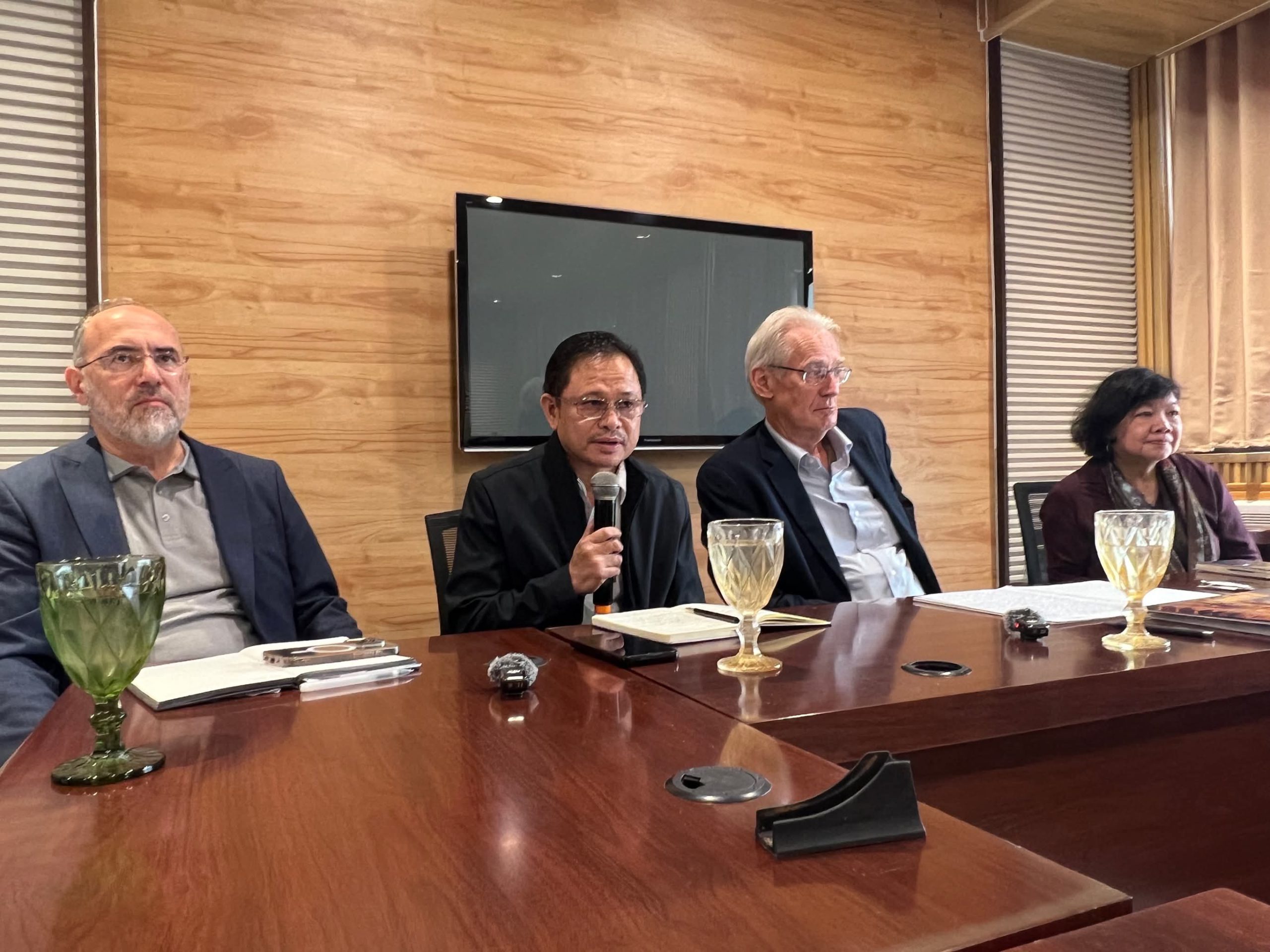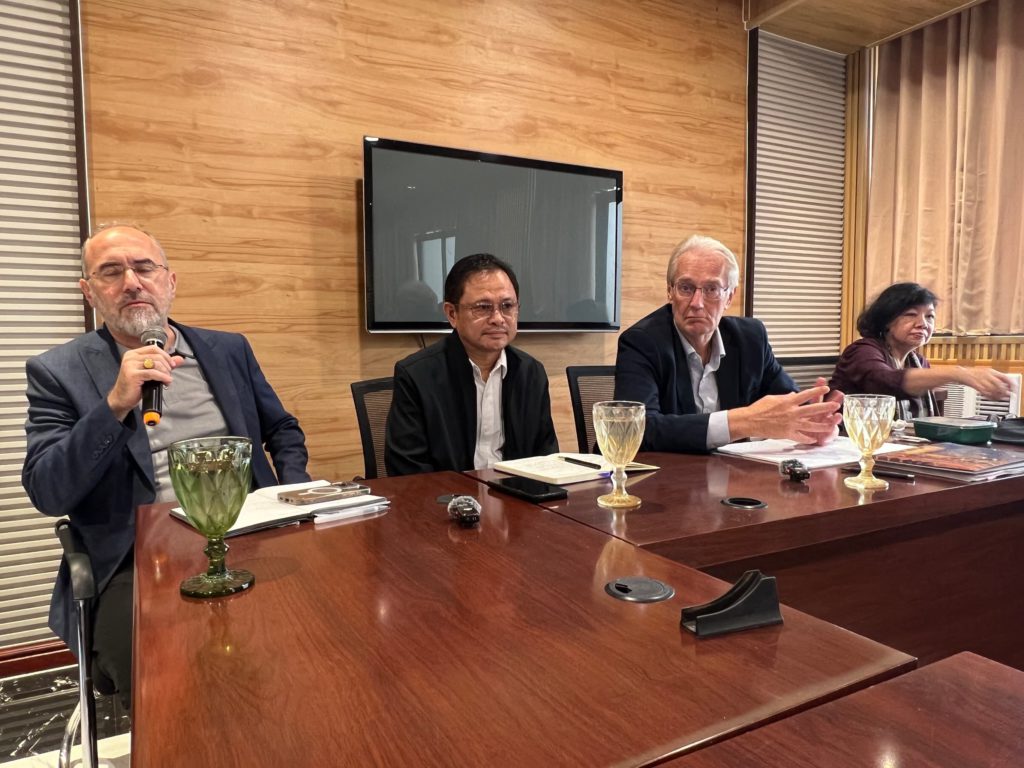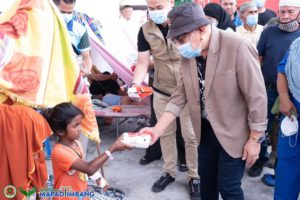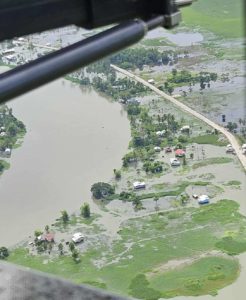
TPMT: Democratic Process is Core to Bangsamoro Peace; Delays Threaten CAB Gains

COTABATO CITY (September 27, 2025) — In a recent media forum with the Third Party Monitoring Team (TPMT) on Friday held at the 4th floor of Casa de Torre, Alnor Hotel, Cotabato City, the group underscored that the democratic process is crucial for the success of the Bangsamoro peace process.
“The democratic space for the people must be upheld, as it is the only viable solution to ensure the success of the peace process. Without it, the situation in the Bangsamoro may worsen,” said the TPMT.
The TPMT emphasized that the Comprehensive Agreement on the Bangsamoro (CAB) serves as the roadmap for peace negotiations and envisions a Parliamentary government in the region. They called on the Commission on Elections (COMELEC) to hold the first parliamentary election in the Bangsamoro Autonomous Region in Muslim Mindanao (BARMM) without further delay.
According to the TPMT, the CAB has already brought significant transformation to the region. The Bangsamoro Transition Authority (BTA) has crafted the necessary legal foundations for the Bangsamoro Government, marking a major milestone in the peace process.
“The heart of the agreement is the political track,” said Sam Chittick, a TPMT member. “It means the people of Bangsamoro must be allowed to exercise their right to vote. This responsibility must be fulfilled through democratic means.”
TPMT Chair Mr. Heino Marius added that the continued postponement of elections creates uncertainty. “Elections must proceed, and whoever is elected should continue implementing the peace process,” he stressed.
Challenges in the Normalization Track
One of the key concerns raised by the TPMT was the sustainability of trust and confidence between the Government of the Philippines (GPH) and the Moro Islamic Liberation Front (MILF), especially regarding the Normalization Track, which includes the Decommissioning of combatants.
The TPMT noted that the decommissioning process has been suspended following a memorandum issued by the MILF on July 19, 2025, citing the GPH’s failure to fulfill its commitments. This has led to serious concerns over the peace process’s stability.
“Decommissioning is not only about handing over weapons or receiving funds,” explained Dr. Rahib Kudto, TPMT member. “It is about the sustainability of trust and confidence—central to the spirit of the agreement.”
He further explained that the peace agreement is a bilateral accord between the GPH and MILF, and that unilateral decisions undermine the mutual trust built over years of negotiations.
Broader Implementation Issues
The TPMT also pointed out that the Normalization Track includes not just decommissioning, but also the Camp Transformation Program, the establishment of the Bangsamoro Police, the implementation of Transitional Justice and Reconciliation, and the rollout of the Amnesty Program. Many of these have either stalled or remain incomplete.
The socio-economic reintegration of former combatants has also come into question, with TPMT noting that the MILF has reported no combatant has yet been fully transitioned into civilian life.
“When exactly was the timeline for full implementation of normalization as per CAB compliance?” the TPMT asked. “Why does OPAPRU [Office of the Presidential Adviser on Peace, Reconciliation and Unity] continue to rely on the BARMM Block Grant and Special Development Fund instead of mobilizing its own resources to fulfill its obligations?”
Leadership Shift Raises Concerns
The TPMT also expressed concern over the recent appointment of a new Interim Chief Minister by President Ferdinand R. Marcos, Jr., saying the move could disrupt the balance of the peace process and does not reflect the spirit of Republic Act 11054, also known as the Bangsamoro Organic Law (BOL).
A Call for Democratic Participation
The TPMT reiterated its call for the immediate conduct of the First Parliamentary Elections in BARMM, emphasizing that the people must be allowed to choose their leaders democratically.
“The public must now play its role in advocating for the elections—not their postponement,” the TPMT concluded. (Faydiyah Samanodi Akmad, BMN/BangsamoroToday)

